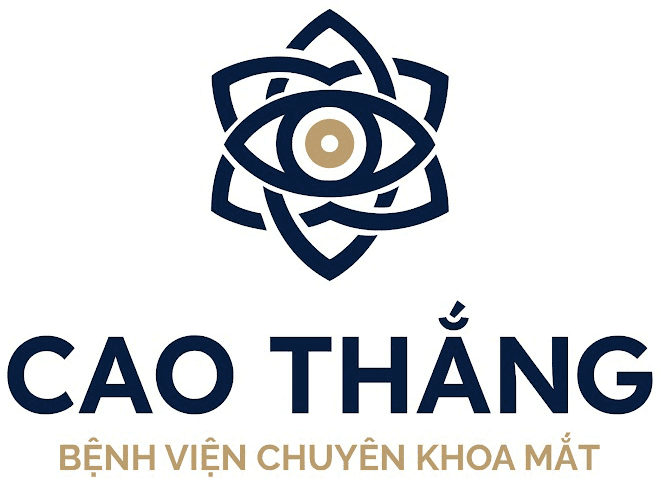Basil

Basil is a “jade leaf” rich in vitamin A and antioxidants
Basil is not only a familiar spice in Vietnamese cuisine but also a powerful herbal remedy for eye health, as supported by numerous studies. According to the Journal of Food Science & Nutrition (2021), basil contains high levels of vitamin A, beta-carotene, and lutein — essential nutrients that help maintain corneal health and prevent dry eyes.
The flavonoids and zeaxanthin in basil also help protect the retina from the harmful effects of ultraviolet rays and blue light emitted by digital screens — one of the main causes of eye strain today.
You can use basil in several ways:
- Eat fresh basil in salads or noodle soups.
- Drink basil tea in the morning to relax and brighten your eyes.
- Enjoy basil juice with honey — a natural detox drink that supports vision.
Combining basil with other herbs such as turmeric or saffron enhances its anti-inflammatory properties and helps slow down macular degeneration.
Turmeric
Turmeric is a well-known herb in traditional Asian medicine, rich in the active compound curcumin — a powerful antioxidant with anti-inflammatory effects. Research published in the American Journal of Ophthalmology (2020) found that curcumin improves retinal cell function and reduces oxidative stress, a key factor contributing to conditions like macular degeneration, cataracts, and glaucoma.
Additionally, turmeric supports blood circulation and helps lower cholesterol, promoting better blood flow to the eyes. Effective ways to use turmeric include:
- Drink a warm turmeric latte in the evening.
- Add fresh or powdered turmeric to daily meals.
- Combine turmeric with honey and black pepper to enhance curcumin absorption.
Regular consumption of turmeric can help improve natural eyesight while protecting the eyes from pollution and blue light exposure.
Saffron

Saffron is a rare herb that supports a healthy retina
Saffron is considered the most precious herb in the world — not only for its economic value but also for its remarkable benefits for eye health. Numerous scientific studies have shown that crocin and crocetin in saffron can protect retinal cells, enhance contrast sensitivity, and slow down age-related macular degeneration (AMD).
A study at the University of L’Aquila (Italy, 2019) found that after taking 20 mg of saffron daily for three months, 90% of participants experienced noticeable improvement in their ability to see in low light.
Safe ways to use saffron:
- Steep 3–5 saffron threads in warm water; drink in the morning or evening.
- Combine saffron with honey, milk, or herbal tea.
Note: Consult your doctor before taking saffron supplements if you are pregnant or on prescription medication.
Cinnamon
Cinnamon is a type of herb packed with polyphenols and beta-carotene antioxidants that strengthen retinal cells. According to the Journal of Diabetes Research (2018), compounds in cinnamon can help stabilize blood sugar levels, thereby preventing diabetic retinopathy — a common cause of vision loss.
Moreover, the pleasant aroma of cinnamon helps relieve stress and relax the optic nerves, making it especially beneficial for people who work long hours on computers.
Simple ways to use cinnamon:
- Drink cinnamon tea every morning.
- Add cinnamon powder to smoothies or yogurt.
- Add cinnamon sticks to detox water with apples and oranges.
However, use in moderation (no more than one teaspoon per day), as excessive cinnamon intake may affect liver health.
Wild Asparagus

Wild asparagus is a natural herb that supports clear vision and retinal protection
Wild asparagus is a naturally growing herb, different from commonly cultivated varieties. It has a sweeter taste, a subtle aroma, and is rich in the antioxidants lutein and zeaxanthin — two key compounds that protect the macula in the retina.
According to Nutrition and Vision Research (2022), people who consumed 10 mg of lutein and 2 mg of zeaxanthin daily (equivalent to 100 g of wild asparagus) reduced their risk of age-related macular degeneration (AMD) by up to 43% and cataract risk by 35%.
These antioxidants help absorb and filter blue light, reducing retinal damage caused by prolonged screen exposure or UV rays. Wild asparagus also provides vitamin C, vitamin E, and zinc, which strengthen eye tissue immunity.
Effective ways to consume:
- Boil or steam wild asparagus and serve with boiled eggs or salad.
- Juice wild asparagus with apples and carrots — an ideal “eye-brightening” drink.
- Combine wild asparagus with other herbs such as turmeric, saffron, or cinnamon for enhanced antioxidant benefits.
A diet rich in natural herbs, combined with leafy greens and orange-red fruits (carrots, oranges, pumpkins), along with proper eye care habits (resting your eyes every 20 minutes, sleeping well, and having regular eye checkups), will help maintain long-term eye health.
Herbs that are beneficial for the eyes — such as basil, turmeric, saffron, cinnamon, and wild asparagus — not only provide nutritional value but also help prevent common eye conditions in today’s digital age. Using herbs correctly, together with a balanced diet and a healthy lifestyle, is the key to keeping your eyes clear and vibrant.

 vi
vi 01-Nov-2025
01-Nov-2025










 0916.741.763
0916.741.763 Appointment
Appointment